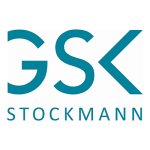Since the first opening of the overseas subsidiary of Bank of China in Luxembourg in 1979, the Grand Duchy has become a gateway to the EU for Chinese financial institutions and more generally has been brought into the sight of Chinese investors as the subsidiary of the Bank of China in Luxembourg and the EU hubs of other Chinese banks which have been set up in Luxembourg at a later stage serve China-based investors that wish to invest in Europe.
The overseas subsidiaries of the Chinese banks have also expanded into capital market activities in Europe alongside asset and wealth management, and are actively involved in financing M&A deals which are originated by Chinese investors.
In 2011, the Luxembourg Stock Exchange (LuxSE) listed the first offshore RMB bonds, better known as Dim Sum bonds, issued in Europe. Since then the exchange between China and Luxembourg has experienced rapid growth, which means that when Chinese investors plan to list renminbi (RMB) bonds in continental Europe today, the LuxSE is a natural choice.
Luxembourg is a pre-eminent hub within the EU for financial services activity connected to the Chinese market, and it is well positioned to act as a bridge into the RMB investment pool; as it has been doing for many years.
According to the OECD data, global foreign direct investment (FDI) flows dropped to $846 billion which corresponds to a decrease of 38% in 2020, the lowest level since 2005, as a consequence of the Covid-19 situation. The Covid-19 pandemic also posed several challenges to the economy of Luxembourg. Investments in Luxembourg dropped considerably until mid-2020 alongside a global slowdown due to Brexit and the Covid-19 crisis.
In order to respond to the financial disadvantages caused by the Covid-19, the Luxembourg government established a financial support scheme for companies in temporary financial difficulty, and implicated a series of tax measures to support companies with regards to direct and indirect tax payments. Recovery could be observed with a slow, but stable pace in the second half of 2020.
By May 2021 the situation looks much better with GDP growth and an increase in tax revenues. The insolvency rate was lower than expected and the economy is getting stronger again. The unemployment rate has also decreased to around 6%. The outlook is positive with Covid-19 figures declining strongly.
Ease of investing
In December 2020, the EU and China reached an agreement in principle on investment that places an emphasis on providing access to the Chinese market for European investors. Ensuring fair treatment for EU companies in the Chinese market and enabling more cross-border deals between the EU and China, the agreement shall support a better balance in the EU–China trade relationship. The framework is likely to also play a key role in helping the Luxembourg and EU markets to recover.
However, the ratification of the agreement might face problems with the EU sanctions on China enforced in March 2021 over concerns about the human rights situation in Xinjiang and the Chinese counter-sanctions. As a result, the influence of the agreement remains uncertain.
As regards practical considerations for making investments in Luxembourg, in general no specific pre-approval process for M&A transactions exists but the deals may be subject to a posteriori approval process by the competent Luxembourg authority. Nevertheless, new EU regulations (Regulation (EU) 2019/452) on FDI entered into force in May 2019.
Under these new regulations, EU member states are required to inform the European Commission and other member states of any FDI review. Even though Luxembourg itself does not conduct any FDI reviews, it will still be subject to this review process under the new regulations.
As regards the merger clearance process, the Luxembourg law of October 23 2011 on competition designated the Competition Council as the competent authority to scrutinise and analyse mergers and acquisitions taking place in Luxembourg and involving Luxembourg entities. Although it is a post-closing merger clearance process, the Council has indicated its readiness to encourage market participants to run a pre-merger control check where feasible. This possibility therefore exists for investors looking to acquire a Luxembourg-based target.
As for the restrictions on investment, specific rules may apply in certain sectors. For example, in acquisitions in the financial sector (e.g. banks or asset managers), an investor must notify its intention to acquire a certain threshold in a Luxembourg bank or financial sector entity to the regulator, the Commission de Surveillance du Secteur Financier (CSSF).
The CSSF has the right to oppose the transaction based on reasonable grounds and certain legal criteria. Other restrictions apply in certain industries or on acquisitions of companies with securities admitted to trading on a regulated market in Luxembourg where the CSSF, being the competent authority, shall supervise bids impartially and independently of all parties to the bids. The related rules are established by the law of May 19 2006 implementing Directive 2004/25/EU on takeover bids, as amended (also known as the Takeover Law).
Generally, the abovementioned rules apply to Chinese investors and investments, and there are no currency restrictions and no specific contractual provisions arise in relation to Chinese investment.
Investment structures
The most common legal entities used for Chinese investment into Luxembourg are private limited liability companies (i.e. société à responsabilité limitée or SARL) or public limited liability companies (i.e. société anonyme or SA). Both are commonly used as structures for acquisition of companies.
The SARL has a lower minimum share capital and seems to be favoured over the SA. As regards to investment activities by funds established by Chinese investors in Luxembourg, the most common structure seems to be the reserved alternative investment fund (RAIF), and also, to a certain extent, the specialised investment fund (SIF). Both are set up as limited partnerships in the form of société en commandite simple or société en commandite spéciale. In addition, an investment company in risk capital (i.e. société d'investissement en capital à risqué or SICAR) is also commonly used by investors including Chinese investors to pool money for investment.
The key requirement for setting up and using any of these vehicles is the establishment of a certain entity in Luxembourg with sufficient substance. A minimum share capital needs to be provided to the Luxembourg vehicle and management procedures need to be put in place. More specifically, a majority of the management members of the vehicle shall be Luxembourg resident and regular board meetings shall be held in Luxembourg, to ensure decisions are made in Luxembourg.
In establishing investment funds that carry out M&A activities, investors must verify that these comply with the regime of alternative investment fund managers and obtain the applicable approvals from of the CSSF. While RAIFs are not subject to CSSF approval, the SIF and SICAR investment vehicles must be pre-approved by the CSSF before they can begin their business activities.
Dispute resolution
The most commonly used dispute resolution mechanisms are court litigation and arbitration.
Arbitration is generally favoured by foreign investors because arbitral awards are easier to enforce than court judgments, more flexible and provide more privacy. By 2020, Luxembourg was party to over 100 bilateral investment protection treaties including a treaty with China, the latest version of which entered into force in 2009. Luxembourg's arbitration courts are used to international agreements, given Luxembourg has been increasingly used as a platform for cross-border investments, joint-venture vehicles and investment funds carrying out M&A activities worldwide.
As regards litigation, Luxembourg courts typically review disputes in a neutral and independent manner within a normal duration of time and issue titles for enforcement useable in Luxembourg and abroad as far as other jurisdictions are covered under respective regulations and treaties.
One of the most important pieces of regulation in this respect is the Recast Brussels Regulation: Regulation (EU) No. 1215/2012 of the European Parliament and of the Council of December 12 2012 on jurisdiction and the recognition and enforcement of judgments in civil and commercial matters.
Another is the Convention on jurisdiction and the recognition and enforcement of judgments in civil and commercial matters (also known as the Lugano Convention). The local Civil Procedure Code and case law are also of importance.
However, parties in Luxembourg tend to solve their disputes outside arbitration and courts. This is to maintain confidentiality and enable a smooth continuation of business in Luxembourg.
Fund structuring
Regarding taxation, Luxembourg benefits from an extended network of double taxation treaties advantageous for FDI into and out of Luxembourg. By applicating the European parent/subsidiary directive, typically no withholding tax applies on dividends. The corporate income tax rate in Luxembourg is 17%. No specific FDI tax incentive schemes are in place, nor are there any specific reciprocal tax arrangements between Luxembourg and China.
On March 21 2020, the Luxembourg parliament passed a law implementing Council Directive (EU) 2018/822 of May 25 2018 amending Directive 2011/16/EU as regards mandatory automatic exchange of information in the field of taxation in relation to reportable cross-border arrangements (also known as the DAC6 Law), which introduces a new obligation for intermediaries to disclose to the Luxembourg tax authorities any cross-border arrangements that meet a hallmark and is expected to also have an impact on cross-border M&A structuring by Chinese investors. The DAC6 Law entered into force on July 1 2020.
On October 14 2020, the Minister of Finance of Luxembourg submitted the draft budget law for the year 2021 (Draft Budget Law) to the Luxembourg Parliament, which, among other things, proposes to introduce a 20% withholding tax on income deriving from real estate located in Luxembourg held by certain Luxembourg investment funds directly or through transparent entities or common funds.
The Draft Budget Law was adopted by the Luxembourg parliament on December 17 2020 and entered into force on January 1 2021 (for most of the tax measures).
In relation to the Covid-19, Luxembourg's Ministry of Finance announced on March 17 2020 the relaxation of certain tax payment deadlines for companies and self-employed individuals affected by the Covid-19 outbreak.
Taxpayers experiencing liquidity problems are entitled to ask fora cancellation of advance tax payments for the first two quarters of 2020. Additionally, the same categories of taxpayer will be given up to four months to pay certain taxes due after February 29 2020, without incurring late payment interest charges. These measures provided more relaxation in terms of cash flows for Chinese investors coming in and having business Luxembourg during the Covid-19 pandemic.
Outlook
The outlook for Chinese investment into Luxembourg remains optimistic, despite the slowdown in Chinese FDI into the EU and the temporary change of investment conditions due to Covid-19, as we are of the opinion that legal and political stability of Luxembourg's regulatory and legislative framework, as well as the growing fund industry and financial sector, are still the main considerations for Chinese investors to make investment decisions even during a pandemic.
Investments focusing on certain sectors, such as consumer goods and infrastructure, are more likely to attract attention and interests from Chinese investors. Nevertheless, environmental, social and governance (ESG) and green investment is going to be a major topic and one big potential growth in terms of opportunities going forward.
The Chinese government has been more and more encouraging of sustainable investment practices and prioritising ESG factors in overseas investment, since the 'Belt and Road Initiative' was incorporated into the Constitution of China in 2017.
A trend where ESG factors and consideration will play an important part in investment decision making is expected, and Chinese investors will need to consider ESG standards in evaluating outbound investment opportunities in Luxembourg and the EU. Expertise in asset management relating to China and strong levels of early movement in green finance marks Luxembourg's position as a hub for supporting green investment flows from China to Luxembourg.
Click here to read the chapters from IFLR's Chinese Outbound Investment Guide 2021

Marcus Peter
Partner
GSK Stockmann
T: +352 271802 00
Marcus Peter is a partner at GSK Stockmann. He previously worked in a leading independent Luxembourg law firm for 12 years (four years as partner), before opening the Luxembourg office of GSK Stockmann in 2016.
Marcus specialises in investment funds, PE and venture capital as well as corporate and M&A law. He regularly speaks at investment fund events and is also a member of the Cross-Border Business Lawyers Network.
Marcus studied at Rostov-na-Donu State University and Saarland University, and is qualified in both Germany and Luxembourg.

Kate Yu Rao
Senior associate
GSK Stockmann
T: +352 271802 00
Kate Yu Rao is a senior associate at GSK Stockmann in Luxembourg. Prior to joining the firm, she worked for a leading independent Luxembourg law firm.
Kate specialises in matters associated with investment funds, PE activity, corporate and finance. She holds a qualification as a fund manager accredited by the Securities Association of China.
Kate studied at the East China University of Political Science and Law, at the Erasmus University Rotterdam and at Bologna University. She also speaks Chinese and is qualified to practice in China.



